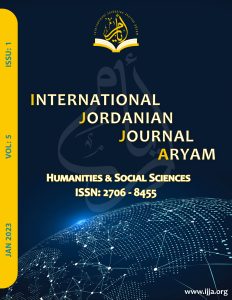Abstract: The article discusses the acceptance of Artificial Intelligence (AI) tools among Moroccan design students in the context of the Technology Acceptance Model (TAM). The mixed-methods research collected data from 37 interior design students from Art’Com Sup, Rabat, using Likert-scale questionnaires and open-ended responses. The qualitative data were processed using sentiment and stance analysis with the help of tools such as Daniel Soper’s statistical platform and ChatGPT. The findings reveal a generally positive attitude towards AI, with students embracing it as a “co-creative” partner in ideation, prototyping, and visualization. Despite this enthusiasm, participants were emphatic about the necessity of the “human touch” in interior design and were skeptical regarding the potential for AI to replace human creativity entirely. The study further highlighted several ethical concerns, including those related to copyright, privacy, over-reliance, and transparency. Overall, the research concludes that Moroccan interior design students are open to adopting AI in their designing practices whilst being critically aware of its impact—indicating towards a hybrid model of creativity that requires responsible AI adoption as well as a critically aware pedagogy of design.
IJJA is a Humanities and Social Sciences publishing journal committed towards providing a platform to outstanding scientists and researchers to exhibit their findings for the furtherance of Humanities and Social Sciences.
The International Jordanian Journal, Aryam Journal of Humanities and Social Sciences (IJJA) (ISSN Online: 3006-7286) welcomes high quality contributions investigating topics in the fields of Humanities and Social Sciences.
![42cd5crossreff[1]](https://aijj.org/wp-content/uploads/2023/04/42cd5crossreff1.jpg)
![6357copenaccsess[1]](https://aijj.org/wp-content/uploads/2023/04/6357copenaccsess1.png)
![97aa6road[1]](https://aijj.org/wp-content/uploads/2023/04/97aa6road1.jpg)

